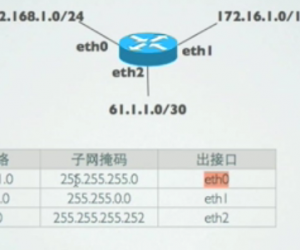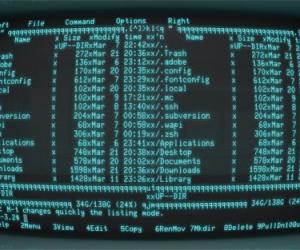CentOS下安装beanstalkd服务
发布时间:2014-09-05 15:53:09作者:知识屋
CentOS下安装beanstalkd服务
beanstalkd在CentOS下没有默认的安装包,需要手动编译安装,最新版本1.6,不过1.5版本后,取消了对libevent的依赖,但不能直接启动作为daemon进程,1.4.6还是可以使用参数 -d 启动为 daemon,所以选择编译1.4.6。安装后默认不带启动脚本,但fedora下可以使用yum安装,安装后生成 /etc/init.d/beanstalkd启动脚本,所以特地在虚拟机里livecd启动fedora17,安装后,挖出beanstalkd启动脚本。
切换到 root用户下:
yum install libevent libevent-devel
www.zhishiwu.com
所有版本地址: https://github.com/kr/beanstalkd/downloads
下载地址:
wget http://cloud.github.com/downloads/kr/beanstalkd/beanstalkd-1.4.6.tar.gz
解压:
tar xzf beanstalkd-1.4.6.tar.gz
cd beanstalkd-1.4.6
./configure
make
make install
默认安装路径 :/usr/local/bin/
查看版本:
/usr/local/bin/beanstalkd -v
www.zhishiwu.com
1.4.6
添加用户组:
groupadd beanstalkd
添加用户:
adduser -M -g beanstalkd -s /sbin/nologin beanstalkd
添加启动脚本,放入 /etc/init.d/ 目录下
chmod 755 /etc/init.d/beanstalkd
加入开机启动:
www.zhishiwu.com
chkconfig beanstalkd on
启动:
service beanstalkd start
安装完毕
附:从Fedora下挖来的 startup 脚本:
001
#!/bin/sh
002
#
003
# beanstalkd - a simple, fast workqueue service
004 www.zhishiwu.com
#
005
# chkconfig: - 57 47
006
# description: a simple, fast workqueue service
007
# processname: beanstalkd
008
# config: /etc/sysconfig/beanstalkd
009
#
010
011
### BEGIN INIT INFO
012
# Provides: beanstalkd
013
# Required-Start: $local_fs $network $remote_fs
014
# Required-Stop: $local_fs $network $remote_fs
015
# Default-Stop: 0 1 2 6
016
# Short-Description: start and stop beanstalkd
017
# Description: a simple, fast work-queue service
018
### END INIT INFO
019
020
# Source function library.
021
. /etc/rc.d/init.d/functions
022
www.zhishiwu.com
023
# Source networking configuration.
024
. /etc/sysconfig/network
025
026
# Check that networking is up.
027
[ "$NETWORKING" = "no" ] && exit
028
exec="/usr/local/bin/beanstalkd"
029
prog=$(basename $exec)
030
031
# default options, overruled by items in sysconfig
032
BEANSTALKD_ADDR=127.0.0.1
033
BEANSTALKD_PORT=11300
034
BEANSTALKD_USER=beanstalkd
035
036
[ -e /etc/sysconfig/beanstalkd ] && . /etc/sysconfig/beanstalkd
037
www.zhishiwu.com
038
lockfile=/var/lock/subsys/beanstalkd
039
040
start() {
041
[ -x $exec ] || exit 5
042
echo -n $"Starting $prog: "
043
# if not running, start it up here, usually something like "daemon $exec"
044
options="-l ${BEANSTALKD_ADDR} -p ${BEANSTALKD_PORT} -u ${BEANSTALKD_USER}"
045
if [ "${BEANSTALKD_MAX_JOB_SIZE}" != "" ]; then
046
options="${options} -z ${BEANSTALKD_MAX_JOB_SIZE}"
047
fi
048
049
if [ "${BEANSTALKD_BINLOG_DIR}" != "" ]; then
050 www.zhishiwu.com
if [ ! -d "${BEANSTALKD_BINLOG_DIR}" ]; then
051
echo "Creating binlog directory (${BEANSTALKD_BINLOG_DIR})"
052
mkdir -p ${BEANSTALKD_BINLOG_DIR} && chown ${BEANSTALKD_USER}:${BEANSTALKD_USER} ${BEANSTALKD_BINLOG_DIR}
053
fi
054
options="${options} -b ${BEANSTALKD_BINLOG_DIR}"
055
if [ "${BEANSTALKD_BINLOG_FSYNC_PERIOD}" != "" ]; then
056
options="${options} -f ${BEANSTALKD_BINLOG_FSYNC_PERIOD}"
057
else
058
options="${options} -F"
059
fi
060
if [ "${BEANSTALKD_BINLOG_SIZE}" != "" ]; then
061
options="${options} -s ${BEANSTALKD_BINLOG_SIZE}"
062
fi
063
fi
064
065
daemon $exec -d $options
066 www.zhishiwu.com
retval=$?
067
echo
068
[ $retval -eq 0 ] && touch $lockfile
069
return $retval
070
}
071
072
stop() {
073
echo -n $"Stopping $prog: "
074
# stop it here, often "killproc $prog"
075
killproc $prog -INT
076
retval=$?
077 www.zhishiwu.com
echo
078
[ $retval -eq 0 ] && rm -f $lockfile
079
return $retval
080
}
081
082
restart() {
083
stop
084
start
085
}
086
087
reload() {
088
restart
089
}
090
091
force_reload() {
092 www.zhishiwu.com
restart
093
}
094
095
rh_status() {
096
# run checks to determine if the service is running or use generic status
097
status $prog
098
}
099
100
rh_status_q() {
101
rh_status >/dev/null 2>&1
102
}
103
104
105
case "$1" in
106 www.zhishiwu.com
start)
107
rh_status_q && exit 0
108
$1
109
;;
110
stop)
111
rh_status_q || exit 0
112
$1
113
;;
114
restart)
115
$1
116
;;
117
reload)
118
rh_status_q || exit 7
119 www.zhishiwu.com
$1
120
;;
121
force-reload)
122
force_reload
123
;;
124
status)
125
rh_status
126
;;
127
condrestart|try-restart)
128
rh_status_q || exit 0
129
restart
130 www.zhishiwu.com
;;
131
*)
132
echo $"Usage: $0 {start|stop|status|restart|condrestart|try-restart|reload|force-reload}"
133
exit 2
134
esac
135
exit $?
(免责声明:文章内容如涉及作品内容、版权和其它问题,请及时与我们联系,我们将在第一时间删除内容,文章内容仅供参考)
相关知识
-

linux一键安装web环境全攻略 在linux系统中怎么一键安装web环境方法
-

Linux网络基本网络配置方法介绍 如何配置Linux系统的网络方法
-
Linux下DNS服务器搭建详解 Linux下搭建DNS服务器和配置文件
-
对Linux进行详细的性能监控的方法 Linux 系统性能监控命令详解
-
linux系统root密码忘了怎么办 linux忘记root密码后找回密码的方法
-
Linux基本命令有哪些 Linux系统常用操作命令有哪些
-
Linux必学的网络操作命令 linux网络操作相关命令汇总
-

linux系统从入侵到提权的详细过程 linux入侵提权服务器方法技巧
-

linux系统怎么用命令切换用户登录 Linux切换用户的命令是什么
-
在linux中添加普通新用户登录 如何在Linux中添加一个新的用户
软件推荐
更多 >-
1
 专为国人订制!Linux Deepin新版发布
专为国人订制!Linux Deepin新版发布2012-07-10
-
2
CentOS 6.3安装(详细图解教程)
-
3
Linux怎么查看网卡驱动?Linux下查看网卡的驱动程序
-
4
centos修改主机名命令
-
5
Ubuntu或UbuntuKyKin14.04Unity桌面风格与Gnome桌面风格的切换
-
6
FEDORA 17中设置TIGERVNC远程访问
-
7
StartOS 5.0相关介绍,新型的Linux系统!
-
8
解决vSphere Client登录linux版vCenter失败
-
9
LINUX最新提权 Exploits Linux Kernel <= 2.6.37
-
10
nginx在网站中的7层转发功能
























